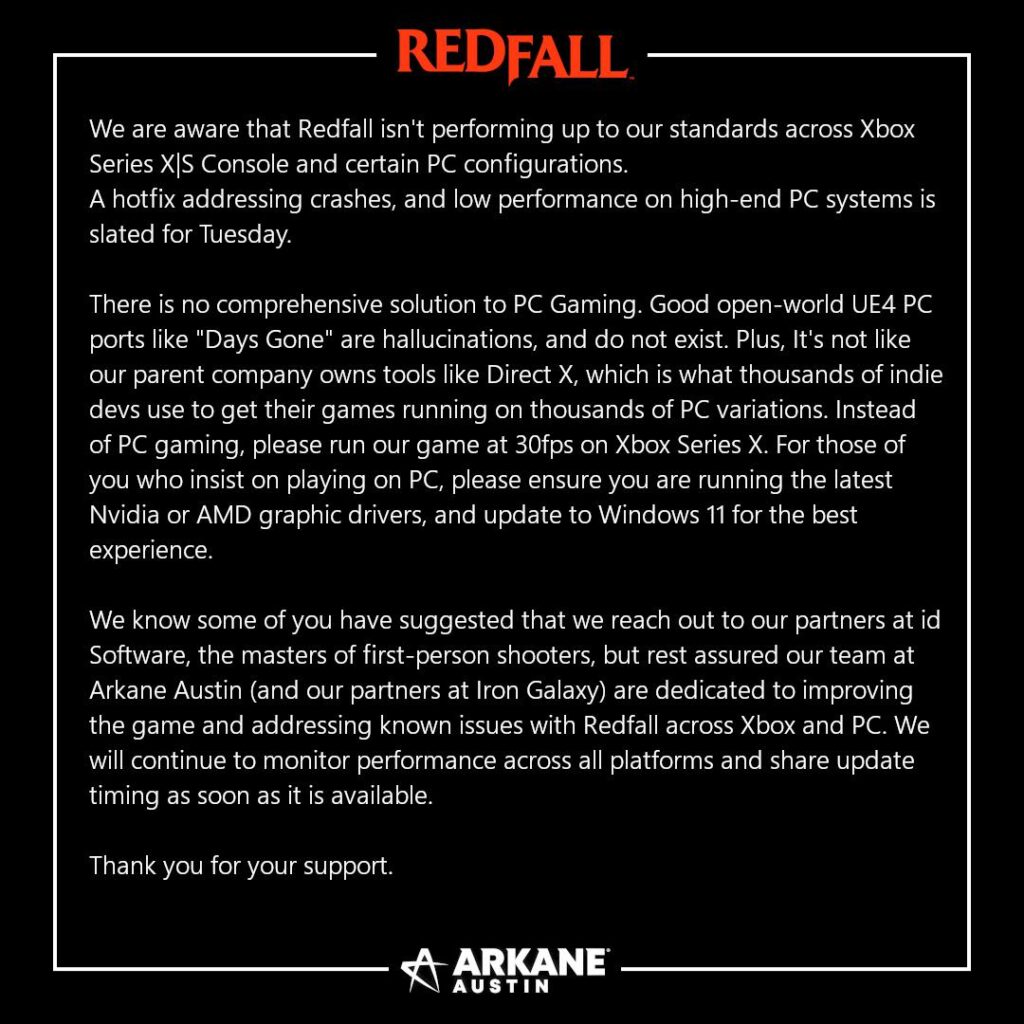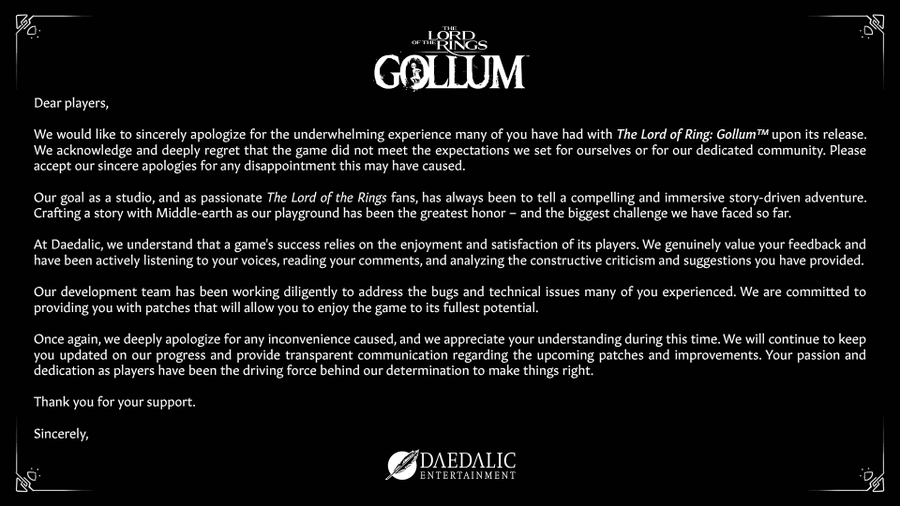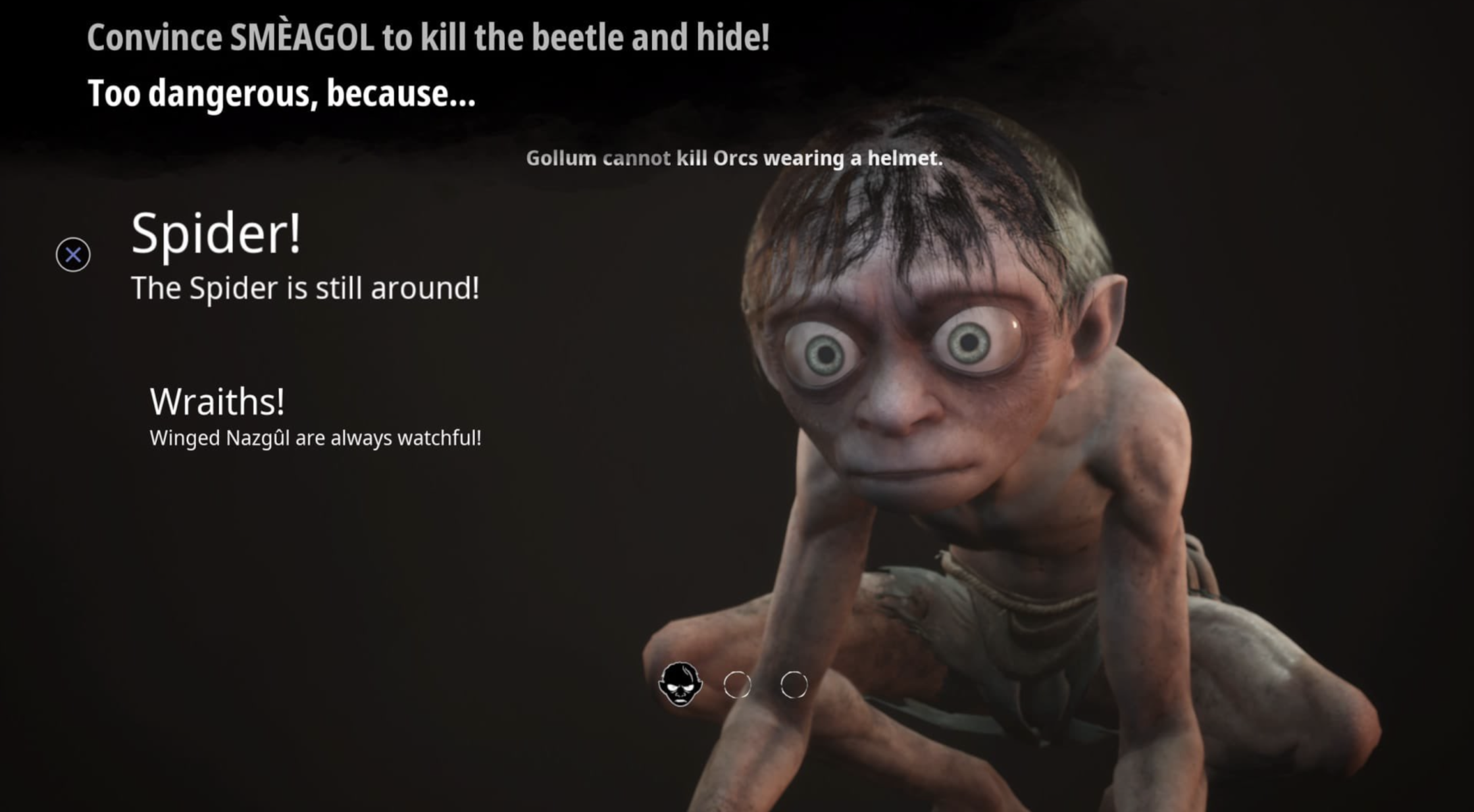Right now, the state of games being released is rough, and they are arguably in the worst state they’ve ever been.
The current pattern of games releasing “broken” and “unfinished” is getting too frequent. Usually, a game or two within a year will release being criticized for their performance and these moments usually end with the developers issuing what the community calls a “dev apology,” promising fixes and future updates that will improve the experience of the game.
This “apology” post usually gets released on Twitter and is made in an attempt to come clean with the players that bought the game and expected the product to work as advertised.
In the last five months alone, five games have released where the developers had to manage this very specific form of crisis communication.
EA’s Star Wars Jedi: Survivor and Playstation’s The Last of Us Part 1 were released with poor PC ports, being deemed borderline “unplayable” by the PC audience.

New IPs from both Playstation and Xbox, Forspoken and Redfall also released with poor performance, with Redfall also being panned by critics for the general quality of the game itself.

And then there’s The Lord of the Rings: Gollum, a game released 5 days ago that has swiftly replaced Redfall as the “Worst Game of the Year” for many.

For smaller developers that lack the million-dollar budgets PlayStation and Xbox possess, releasing games in a rough state is common and somewhat understandable. But when major publishers push out fundamentally incomplete products compared to their successful releases, it sets a negative standard for the industry, and presents what we can expect from these companies down the line.
Currently, with how frequent these occurrences are, Twitter users are now collecting dev apologies like infinity stones, updating their collage with every new apology, the most recent being from Daedalic, the team behind Gollum.
No one can predict the nature of any game’s release, but it’s starting to look like a pattern of normalcy for the industry for us to be skeptical of the quality of a game, even if its level of anticipation is through the roof.
With Xbox’s next brand new IP in the form of Starfield on the horizon, as well as PlayStation’s Final Fantasy XVI around the corner, it’s a concerning how many games between and beyond those will add to the list of games disappointing enough to warrant a full-fledged press release to apologize for the quality of their product.

